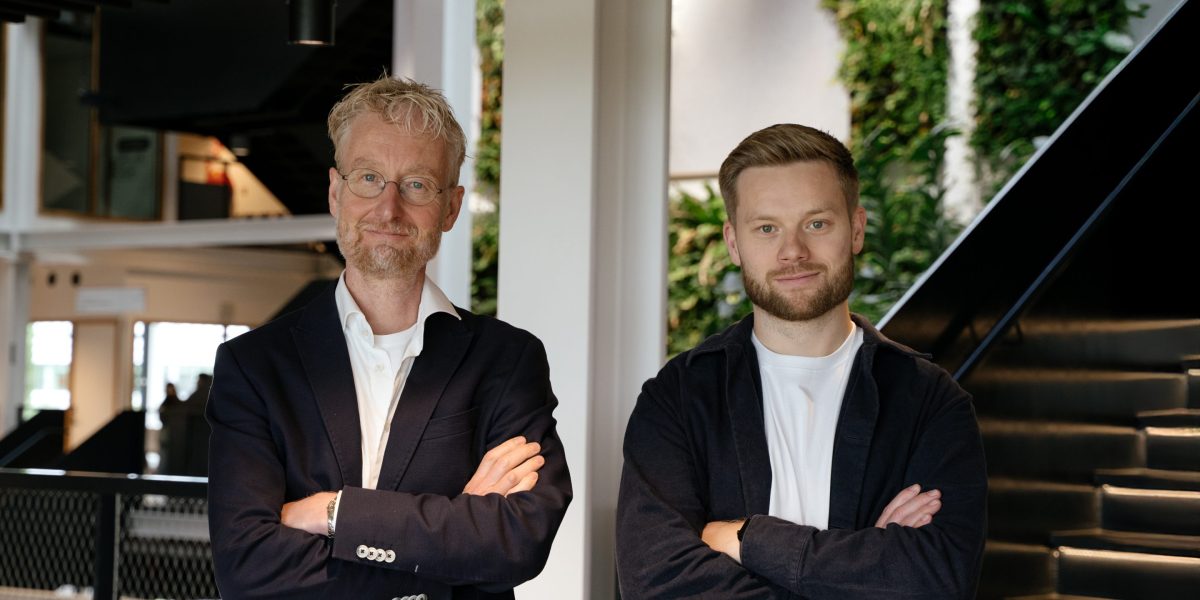CuspAI, a startup developing AI models for chemistry that counts several AI luminaries among its scientific advisors, has raised $100 million in new venture capital funding.
The funding round, the company’s Series A, was led by venture capital firm New Enterprise Associates and Singapore sovereign wealth fund Temasek. Nvidia’s venture capital arm NVentures, Samsung Ventures, and Hyundai[/hotlink ignore=true] Motor Group also participated in the financing, along with a number of venture capital firms and angel investors who had previously backed the company.
The funding round values CuspAI at $520 million, one source familiar with the deal said. CuspAI declined to comment on its valuation.
CuspAI, which has hired staff from leading AI labs, including Google DeepMind and Meta, is among several AI startups hoping to use the technology to discover how to develop new physical materials, from more efficient batteries, to new kinds of semiconductor and superconductors, to substitutes for plastic that are more sustainable.
As well as investing in CuspAI, Hyundai said it was partnering with the startup on “sustainable energy applications.”
“With CuspAI as our partner, we will leverage the power of AI to advance our performance and sustainability goals,” Keith Noh, vice president head of the ZERO1NE Group at Hyundai Motor Group, said in a statement. “We believe novel materials offer an extraordinary opportunity to accelerate progress towards a better, cleaner, and more efficient future.”
The company is also announcing that Lord John Browne, the former BP CEO who is now chair of the Francis Crick Institute, and Martin van den Brink, the former president and CTO of ASML, which makes the lithography technology for producing advanced semiconductors, are joining its advisory board.
That board already contains two AI “godfathers,” Geoffrey Hinton, the Nobel-prize-and-Turing Award-winning deep learning pioneer, and his fellow Turing Award-winner Yann LeCun, who is Meta’s chief scientist. It also includes Kristin Persson, a distinguished materials science professor at the University of California Berkeley, who leads the Materials Project, a multinational effort to use machine learning to discover the properties of inorganic materials, and Verity Harding, a former Google DeepMind head of public policy who is now the director of the AI and Geopolitics Project at the University of Cambridge.
CuspAI has been building AI “foundation models” that can make predictions about chemistry, much the way that large language models make predictions about language. It bills its technology as “a search engine for the material world.”
The startup’s first target has been new substances that would allow for “direct air capture” of carbon dioxide, absorbing carbon dioxide like a sponge and sequestering it within the material itself. Working in partnership with Meta and Georgia Tech, the startup helped create OpenDAC, the world’s largest dataset on materials with the potential to act as these kinds of CO2 sponges, containing more than 100 million datapoints.
The company is now branching out into other kinds of materials. It has signed a partnership agreement with water company Kemira to find new materials that might help filter PFAS (so called forever chemicals) out of water supplies. The partnership with Hyundai could see it working on materials for batteries or to improve hydrogen fuel cells.
Chad Edwards, CuspAI’s cofounder and CEO, told Fortune the company was looking at partnerships in the semiconductor industry too.
He said the company would use the money it has raised to continue to build out is team, which now consists of about 30 employees, and to open additional offices, with Asia a particular focus.
Lila Tretikov, a former deputy CTO at Microsoft who is now a partner at NEA and led the investment into CuspAI for that firm, said she was impressed by the pedigree of CuspAI’s team, the data sets it had access to, and how far along it was in building its foundation models compared to competitors. “At Microsoft, we used to say what really matters in breakthroughs in AI is scale and speed. And I think this team has both,” she told Fortune.
Edwards said that CuspAI has already shown that, with help from its foundation models, it can go from a customer’s request that it needs a material with certain properties to having a completely novel material meeting those customer specs within six months, a process he said might normally take a decade. He thinks the company may be able to cut even that time to just one to two months within the next two years.
While some previous attempts to apply AI to the generation of new materials have resulted in recipes for substances that are simply too difficult to manufacture, CuspAI had developed what Edwards says are “synthesis-aware generative AI models” that are more likely to produce materials that chemical companies can actually make.
He said CuspAI is pursuing a dual strategy of making materials to order for large partners as well as developing its materials for its own projects, although the emphasis so far has been on making materials to spec for partners. “In the early days, we thought, ‘let’s be commercial and find partners with clear problems and a clear route to market,’” he said.
The competition among chemistry and material science AI startups is rapidly heating up. And although Edwards did not say it explicitly, this competition may have also prompted it to raise a large, new investment round.
Edwards noted that when the company announced its $30 million seed funding round in June 2024, it was the largest seed round for a materials science AI startup at the time. But since then, Flagship Pioneering, a major life sciences and biotech firm, spun out Lila Sciences with a $200 million seed round. Periodic Labs, a startup founded by ex-OpenAI and Google DeepMind staffers, also raised a $200 million seed round led by Silicon Valley venture capital firm Andreessen Horowitz that valued the months-old company at $1 billion.
Fortune Global Forum returns Oct. 26–27, 2025 in Riyadh. CEOs and global leaders will gather for a dynamic, invitation-only event shaping the future of business. Apply for an invitation.
